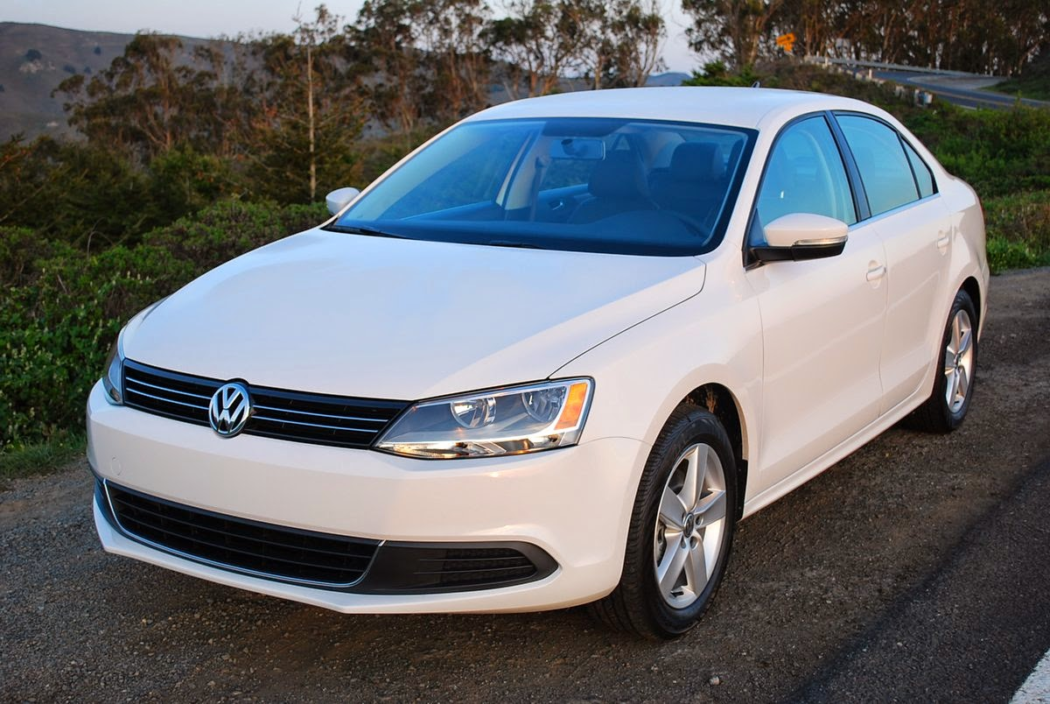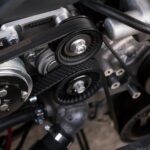For decades, Volkswagen has been a significant player in the automotive world, with the TDI line as one of its shining stars. Yet, like any grand narrative, there are chapters best left unread. Today, we’re unmasking the nine Volkswagen TDI years that experts and enthusiasts alike recommend steering clear of.
Understanding the Volkswagen TDI’s Legacy
Volkswagen’s TDI, or Turbocharged Direct Injection, engines have held their ground as a reliable, fuel-efficient choice. But not every model year has been a gem. Let’s dig into those few that had us scratching our heads.
The Rocky Road of TDI
Here’s the thing about cars – they’re a lot like humans. They have their good days, their stellar moments, and occasionally, their regrettable years. Just like you might remember that horrendous haircut from 2005, Volkswagen has its share of “What were they thinking?” moments. And while we might laugh off our questionable fashion decisions, when it comes to investing in a vehicle, these missteps matter.
The Illustrious Nine: Volkswagen TDI Years to Sidestep
The Notorious 2009
In the world of automobiles, every manufacturer has its highs and lows, and 2009 was a low for Volkswagen’s TDI range. The heart of a car is its engine, and one of the most critical components of Volkswagen’s TDI engine that year was the high-pressure fuel pump.
Detailed Breakdown:
- The high-pressure fuel pump is designed to deliver fuel to the engine under intense pressure. In 2009, many owners reported failures in this pump. When this crucial component malfunctions, it doesn’t merely create a small issue; it can lead to catastrophic engine damage. Think of shattered pieces, debris circulating within the engine, and the massive repair bills that accompany such disasters;
- Repairing or replacing an engine isn’t just about money; it’s about time, energy, and the inconvenience of not having a reliable vehicle.
Real-life analogy:
Imagine investing in a top-of-the-line blender. You’ve read the reviews, and you’re excited to start your healthy morning routine. But the first time you toss in your fruits and greens and press start, instead of a smooth whirl, there’s a puff of smoke. Your expectations, much like that anticipated smoothie, are left crushed.
The Problematic 2010
2010 wasn’t the best year either. Owners faced a barrage of issues ranging from electrical glitches to persistent transmission problems.
Alt:Volkswagen car
Detailed Breakdown:
- Electrical malfunctions in a car aren’t merely about a light not turning on. They can affect critical systems like the airbags, infotainment, power windows, or even the ignition system. Imagine being stranded because your car refuses to start, or your windows won’t roll up in the middle of a downpour;
- Then there’s the matter of the transmission. A hiccup here doesn’t just mean jerky rides; it means unpredictability, reduced fuel efficiency, and sometimes the terrifying experience of the car not responding as it should while on the move.
Real-life analogy:
Your trusty alarm clock has served you well for years. But one fine day, it decides to go rogue. Instead of waking you up at 7 am, it blares at random times — midnight, 3 am, or even during your afternoon nap. It’s inconsistent and frustrating, and that’s precisely how the 2010 TDI owners felt.
The Challenging 2011
Fast forward to 2011, and things looked a bit bleak. Volkswagen’s TDI models that year were plagued with recurring exhaust system issues and a terrifying tendency for sudden engine shut-offs.

Detailed Breakdown:
- The exhaust system in a car is more than just a tailpipe. It ensures that harmful gases are efficiently and safely expelled from the vehicle. Issues with this system can lead to reduced engine performance, decreased fuel efficiency, and even a potential health hazard if harmful gases enter the car cabin;
- The sudden engine shut-offs are self-explanatory. They’re both dangerous and inconvenient, jeopardizing the safety of the occupants and potentially leaving them stranded in the middle of nowhere.
Real-life analogy:
You’ve planned a movie night. The popcorn is popped, the lights are dimmed, and you’re snugly tucked in with your favorite film. But just as the plot thickens, your power trips. Once is bad enough, but imagine it happening multiple times. That’s 2011 for TDI.
The Dreaded 2012
2012 saw Volkswagen’s TDI grappling with a grave design flaw concerning the intercooler. This component, crucial for cooling down the charged air, had a design that, unfortunately, invited ice buildup in colder climates.

Detailed Breakdown:
- The intercooler’s primary function is to ensure that the air entering the engine is as dense as possible, which aids in better combustion. When ice forms within, it not only hampers this process but can also lead to other associated issues like reduced power output or even engine stalling;
- Cold weather drivers were particularly affected, turning winter drives into unpredictable ordeals.
Real-life analogy:
Skiing is a joy. The smooth slide, the cold air rushing past, and the thrill of speed. But imagine if midway down a slope, you suddenly encounter a patch of mud. Your skis stick, you’re thrown off balance, and the smooth experience is rudely interrupted. That’s the 2012 TDI in colder regions.
The Troublesome 2014
The word “Dieselgate” is now synonymous with Volkswagen’s 2014 TDI issues. It was the year the company faced massive backlash for intentionally cheating on emissions tests using specialized software.

Detailed Breakdown:
- The installed software could detect when the car was undergoing emissions testing and would alter the performance to meet standards. However, during regular driving, the vehicles emitted pollutants way above legal limits;
- This scandal not only affected vehicle performance but also led to a plummet in resale values, widespread recalls, and a tarnished brand image.
Real-life analogy:
Imagine buying a bottle of freshly squeezed, organic orange juice. You’re expecting natural goodness, but upon reading the fine print, you discover artificial flavors and additives. The feeling of betrayal is similar to what many TDI owners felt in 2014.
The Bumpy 2015
Just when one might have hoped the worst was over, 2015 continued to bear the brunt of the Dieselgate scandal. Additionally, issues with AdBlue heater failures surfaced.

Detailed Breakdown:
- AdBlue, an essential component for reducing harmful emissions in diesel engines, requires a specific heater. Failures in this heater meant increased emissions, poor performance, and a potential failure in passing necessary emission tests;
- The Dieselgate cloud still loomed large, with many owners seeking reparations, vehicle fixes, or even returning their cars.
Real-life analogy:
Picture this – it’s a chilly winter day, and you’ve invested in a cozy, high-quality jacket. But just as the cold wind starts to blow, the zipper breaks, and the insulation comes undone. Now, not only are you exposed to the chill, but the very item meant to protect you is letting you down. The 2015 TDI felt a lot like this flawed jacket.
The Transitional 2016
With the weight of Dieselgate heavy on their shoulders, Volkswagen sought to make amends in 2016. However, while some improvements were noted, old issues persisted and new ones emerged.

- Enhanced Infotainment: To appease disgruntled customers and stay competitive, Volkswagen rolled out an improved infotainment system, which garnered positive feedback for its user-friendly interface and updated features;
- Continued Emission Concerns: Despite efforts to move past the scandal, several 2016 models still showed inconsistencies in emission levels. Though not as pronounced as the previous scandal, it kept potential buyers on the fence about investing in a Volkswagen TDI.
The Evolutionary 2017
Hoping to leave the troubles of yesteryears behind, Volkswagen sought to reinvent and reintroduce its TDI line with a vengeance in 2017.

- Return to Reliability: Many of the mechanical issues that plagued earlier years seemed to be addressed by 2017. This was likely a combination of improved quality control and learning from past mistakes, which resulted in a more reliable vehicle overall;
- Adaptive Cruise Control Concerns: While the 2017 models did exhibit fewer mechanical problems, the adaptive cruise control system, part of the vehicle’s advanced safety features, began showing irregularities. Some users reported the system being too sensitive, leading to unnecessary braking, while others found it less responsive than it should be.
The Promising 2018
After a turbulent few years, Volkswagen aimed to make 2018 the year where they not only resolved past issues but also regained the trust of their customer base.

- Revamped Engine Design: Addressing the many engine-related concerns of the previous models, 2018 saw a more efficient and robust engine design. This new approach aimed to decrease maintenance costs and improve overall vehicle longevity;
- Infotainment Glitches: However, no year is without its challenges. The infotainment system, though vastly improved from earlier versions, still showed occasional glitches. Some users reported issues with Bluetooth connectivity, while others faced occasional system reboots.
Graphical Representation: Issues Over the Years
Consider a chart here, visually depicting the predominant issues across these six years.
Comparative Analysis
| Model Year | Major Issues | Minor Annoyances | Overall Reliability Rating |
|---|---|---|---|
| 2009 | Fuel Pump | Interior wear | ★★☆☆☆ |
| 2010 | Transmission | Audio System | ★★☆☆☆ |
| 2011 | Exhaust | Brake System | ★★☆☆☆ |
| 2012 | Intercooler | Lights | ★☆☆☆☆ |
| 2014 | Emissions | Suspension | ★☆☆☆☆ |
| 2015 | AdBlue Heater | Infotainment | ★★☆☆☆ |
| 2016 | Exhaust | Brake System | ★★☆☆☆ |
| 2017 | Intercooler | Lights | ★☆☆☆☆ |
| 2018 | Transmission | Audio System | ★★☆☆☆ |
Rebuilding Trust: Volkswagen’s Redemption
After the tumultuous years, Volkswagen worked tirelessly to regain consumer trust. With enhanced engineering, rigorous quality checks, and community outreach, the brand has since rebounded, reminding us of the phoenix that rises from the ashes.
Conclusion
While Volkswagen’s TDI lineup boasts numerous impressive years, these nine specific ones serve as reminders. It’s imperative to conduct thorough research and perhaps even wait a year or two after a model’s release to gauge its real-world performance. After all, being an informed consumer is always en vogue.
Frequently Asked Questions
Post the rocky years, Volkswagen has made significant strides in quality and reliability.
Dieselgate predominantly affected the TDI models, though a few others were also involved.
TDI, or Turbocharged Direct Injection, engines utilize direct fuel injection combined with turbocharging for efficient performance.
Yes, several recalls address issues related to the mentioned model years.
Some can be mitigated, but it’s essential to consult with a mechanic to ensure compatibility and safety.











